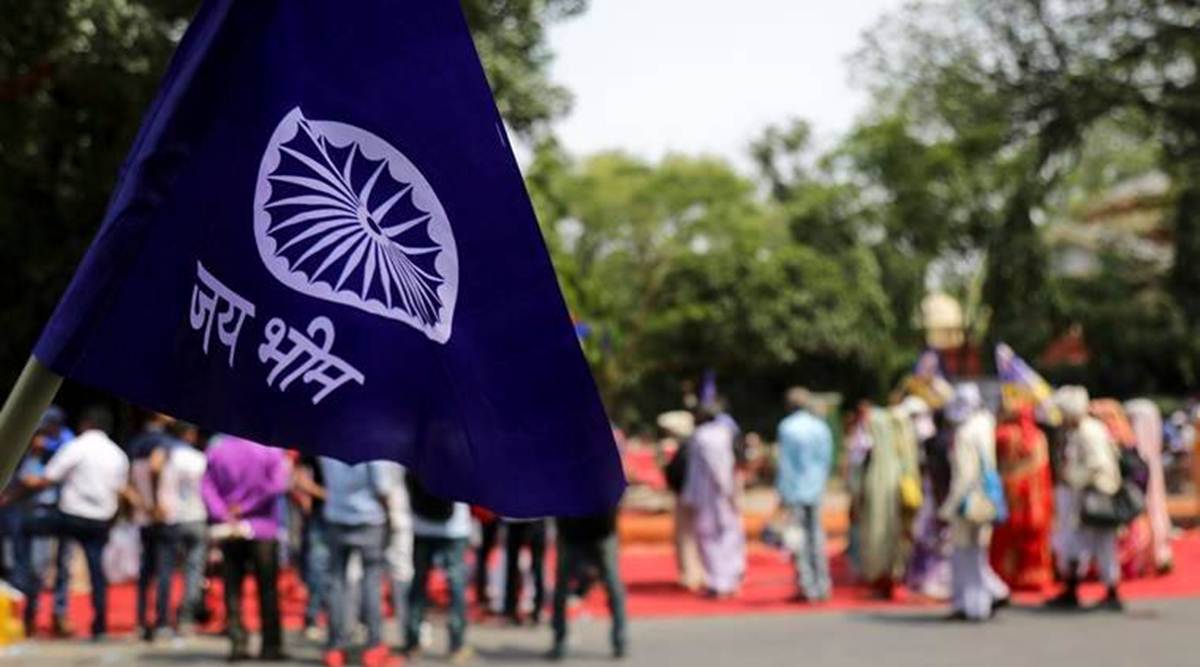 Representation at crucial decision-making positions is still a work in progress.
Representation at crucial decision-making positions is still a work in progress. Dalits constitute more than 16 per cent of our population. Over the last seven decades, the community’s struggle for dignity and recognition has certainly become more robust and organised due to the constitutionally mandated affirmative action policies. With special protection in state-sponsored employment and education, Dalits have made a positive mark on the politics of the nation.
It is remarkable to note that the institutions of power, authority and governance have become relatively subalternised due to the vision and foresight of the makers of our Constitution and chiefly because of the chairperson of the drafting committee, B R Ambedkar. He articulated the path of a dignified existence for people who had been oppressed and marginalised. However, the struggle has continued as the problem of caste is more structural than it seems from the outside. Incidents of violence and the nature of exclusion remain a haunting experience for the community at large.
Representation at crucial decision-making positions is still a work in progress. Social capital for Dalits remains a remote reality, but a substantial amount of political capital has contributed to the advancement of the interests of the community. Therefore, it becomes imperative to understand the trajectory of the political articulation of Dalits to get a sense of the direction in which the movement is headed.
In the decades following Independence, the Congress was the only option for Dalits across the nation, regardless of the toxic disagreements it had with Ambedkar, who was perceived as the tallest leader of the community. The constituent assembly debates and the ensuing politics remain a testament to the fact that Congress and Ambedkar were never destined to be fellow travellers. Therefore, the contest over Ambedkar’s legacy must be viewed as a natural progression, as no single individual or institution can claim to have sole custodianship over him. Babu Jagjivan Ram who is less spoken and written about by political historians, was also an underrated, but important figure who consistently raised the concerns of the marginalised and who still has his name registered as one of the longest-serving parliamentarians, not only in India but across the world. Thus, it would not be inappropriate to assume that Dalit politics after Independence primarily pivoted around Ambedkar and Jagjivan Ram, with the Congress providing an institutional umbrella in the absence of any other organisational substitute.
There was Ramdhan in Janata Party from Uttar Pradesh who had an impact on the party, but thereafter there was a huge vacuum until the arrival of Kanshi Ram and Ram Vilas Paswan, who went on to shape the political expression of the Dalits in the heartland for the next couple of decades. The emergence of the Bahujan Samaj Party in the backdrop of rising cases of exploitation and violence against Dalits in Punjab, Haryana and UP was a significant moment. For the first time in the political history of the nation, a political organisation was envisioned to represent a block of Bahujans that included sections of intermediary castes and Dalits. However, with the onset of the Ram Janmabhoomi movement and the politics of the Mandal commission, the idea behind this block suffered a major jolt. The BSP has subsequently toyed with varied social coalitions successfully and unsuccessfully, but the party is now staring at an existential crisis. No political organisation can flourish without internal democracy and collective leadership.
Dalits have experimented with parties that initially started with an idea but in due course became largely focused on individuals and families. When the leadership cannot keep a political party in order, how can we expect them to provide credible leadership to the community, which remains at the bottom of the socio-economic pyramid?
Dalits are clearly fed up with the soap opera politics of family-based enterprises that claim to represent the interests of the community. They desperately want to be a part of mainstream politics as envisioned by Ambedkar. They want to become stakeholders in the growth and progress of the country and do not just want to remain a political commodity that can be traded during elections.
The Congress failed them. Regional parties offered them no sustainable solution. Therefore, the Bharatiya Janata Party is becoming an increasingly relevant force among the Dalits. Representation beyond ceremonial places in organisation and in government will be the guiding force of the next generation of reforms for recognition and dignity of the Dalit samaj.
The writer is national spokesperson, BJP and assistant professor, Patna University
- The Indian Express website has been rated GREEN for its credibility and trustworthiness by Newsguard, a global service that rates news sources for their journalistic standards.

